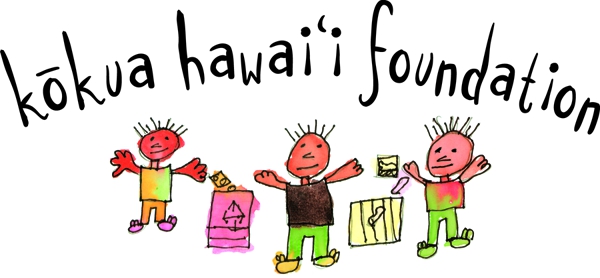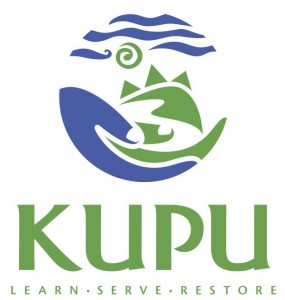4 Big Island Schools Receive Environmental Project Funding
 Schools in Hilo and West Hawai‘i will be going green with the help of funding from Kupu and Kōkua Hawai‘i Foundation’s inaugural Hawai‘i Youth Sustainability Challenge mini-grant program.
Schools in Hilo and West Hawai‘i will be going green with the help of funding from Kupu and Kōkua Hawai‘i Foundation’s inaugural Hawai‘i Youth Sustainability Challenge mini-grant program.
The mini-grant funding will support students at Hilo Union Elementary School, St. Joseph School, Kealakehe Intermediate School and Kohala High School to help them implement their innovative project proposals, which include a children’s book, a community garden and robot prototypes.
“We’re really excited to be able to support schools on Hawai‘i Island in developing unique ways to mālama ‘āina,” said John Leong, CEO of Kupu. “Our youth are the next generation of environmental stewards and community leaders in our state, and hopefully projects like these, inspire and empower them to continue to create sustainable solutions for a better, more resilient Hawai‘i.”
Twenty-five schools across the state will be receiving funding to implement new environmental projects that raise sustainability awareness and practices in schools and their communities. HYSC mini-grant funding will be provided to the following projects on Hawai‘i Island:
- Hilo Union Elementary School will launch their “Let Us Grow” program, in which their fifth graders will grow their own greens through hydroponic buckets, as well as educating other students on how to do the same and how hydroponics compares to growing vegetables in soil.
- Through its proposed project, “Huli Ka Lima I Lalo,” St. Joseph School’s Hawaiian language class will be creating a Hawaiian garden or mala on campus, to grow native plants based on the Hawaiian moon calendar, to learn more about traditional Hawaiian knowledge and how to successfully grow and maintain a Hawaiian garden.
- Kealakehe Intermediate School was awarded two mini-grants for its children’s book and “The Edible Vending Machine” projects. Students in seventh and eighth grade will be producing a book about harvesting pa‘akai (sea salt) to better educate about the connection between traditional Hawaiian knowledge and sustainable living. “The Edible Vending Machine” is a project proposed by eighth-grader Riley Estrada, who will be designing a vending machine prototype and app to offer healthy, delicious and sustainable snacks to students.
- Inspired by a recent beach cleanup, students from Kohala High School are hoping to educate their community about marine debris through recycling stations, presentations and building a prototype of a futuristic micro-plastic cleaning robot.
“The Hawai‘i Youth Sustainability Challenge has allowed us to further connect with and empower Hawai‘i’s students to carry out innovative and much-needed projects to address their vision for a healthy, sustainable future,” added Natalie McKinney, Kōkua Hawai‘i Foundation executive director. “We are inspired by their creativity and look forward to seeing the outcomes of their projects. For over a decade, Kōkua Hawai‘i Foundation’s Mini-Grant Program has funded these types of projects in and out of the classroom. We are honored and proud to work with our many partners on the HYSC to reach even more students across the state.”
The Hawai‘i Youth Sustainability Challenge (HYSC) was first announced by First Lady Dawn Amano-Ige at the 2016 IUCN World Conservation Congress and is dedicated to inspiring youth to be intentionally engaged with the environment through action, advocacy and education. The HYSC mini-grant program is a Legacy Initiative from the IUCN Congress, made possible through funding by Harold K. L. Castle Foundation, Kamehameha Schools and Public Schools of Hawai‘i Foundation, with the support of the Hawai‘i State Department of Education.
“I’m thrilled to see so many students throughout the state engage in the Hawai‘i Youth Sustainability Challenge, and even more excited to support their creativity and environmental stewardship through this IUCN Legacy Initiative,” said the First Lady. “These students are agents of change in their own communities, helping us to promote the importance of our natural resources, while implementing innovative projects that will help preserve the beauty of our environment for generations to come. Congratulations to all the Hawai‘i Youth Sustainability Challenge mini-grant recipients.”
For more information about the Hawai‘i Youth Sustainability Challenge, go online.
About KUPU
Kupu is a 501(c)(3) nonprofit organization based in Honolulu, Hawai‘i. Kupu in Hawaiian means “to sprout, grow, germinate, or increase.” Kupu’s mission is to bring life back to the people, land, and ocean while restoring the larger community for a better tomorrow. Celebrating its 10th anniversary this year, Kupu has continued to provide quality service-learning programs in conservation, renewable energy, agriculture and sustainability. Through these initiatives, Kupu provides youth and young adults with vital work training, leadership, responsibility and learning to serve the community, incorporating vocational training, educational degree achievement and service learning. Kupu provides hundreds of paid internships, engages up to 17,000 volunteers, and provides more than $16 million benefit to Hawai‘i through its programs annually. This includes over 230,000 service hours and close to a half million dollars in college and continued education funds to Hawai‘i’s youth. For more information, visit www.kupuhawaii.org.
About Kōkua Hawai‘i Foundation
Kōkua Hawai‘i Foundation is a 501(c)3 nonprofit organization, founded in 2003 by Kim and Jack Johnson, that supports environmental education in the schools and communities of Hawai‘i. Kōkua Hawai‘i Foundation programs include ʻĀINA In Schools, 3R’s School Recycling, Kōkua Hawai‘i Foundation Field Trip Grants, Kōkua Hawaiʻi Foundation Mini-Grants and Plastic Free Hawai‘i. For more information, visit www.kokuahawaiifoundation.org.







